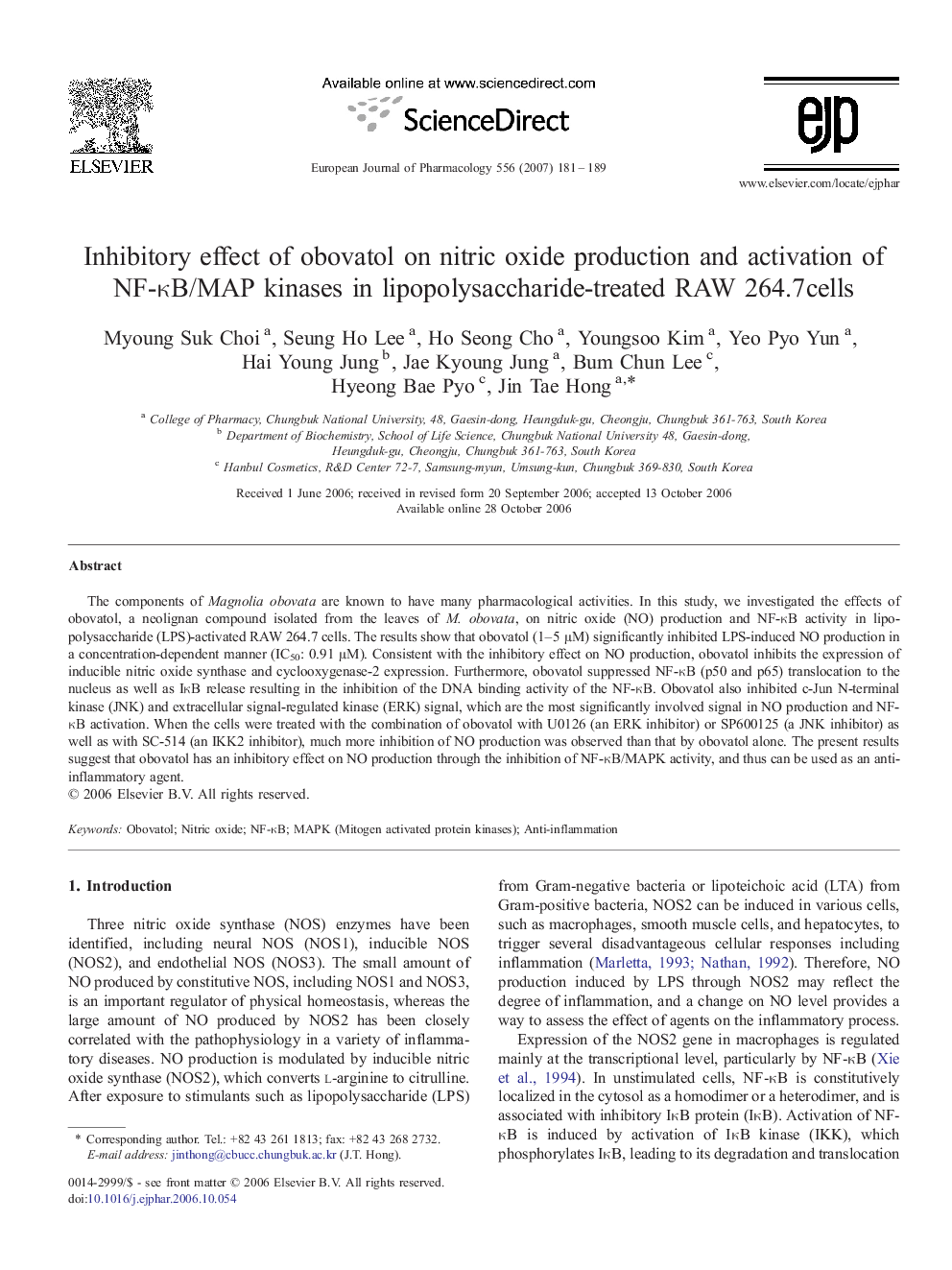| Article ID | Journal | Published Year | Pages | File Type |
|---|---|---|---|---|
| 2536420 | European Journal of Pharmacology | 2007 | 9 Pages |
The components of Magnolia obovata are known to have many pharmacological activities. In this study, we investigated the effects of obovatol, a neolignan compound isolated from the leaves of M. obovata, on nitric oxide (NO) production and NF-κB activity in lipopolysaccharide (LPS)-activated RAW 264.7 cells. The results show that obovatol (1–5 μM) significantly inhibited LPS-induced NO production in a concentration-dependent manner (IC50: 0.91 μM). Consistent with the inhibitory effect on NO production, obovatol inhibits the expression of inducible nitric oxide synthase and cyclooxygenase-2 expression. Furthermore, obovatol suppressed NF-κB (p50 and p65) translocation to the nucleus as well as IκB release resulting in the inhibition of the DNA binding activity of the NF-κB. Obovatol also inhibited c-Jun N-terminal kinase (JNK) and extracellular signal-regulated kinase (ERK) signal, which are the most significantly involved signal in NO production and NF-κB activation. When the cells were treated with the combination of obovatol with U0126 (an ERK inhibitor) or SP600125 (a JNK inhibitor) as well as with SC-514 (an IKK2 inhibitor), much more inhibition of NO production was observed than that by obovatol alone. The present results suggest that obovatol has an inhibitory effect on NO production through the inhibition of NF-κB/MAPK activity, and thus can be used as an anti-inflammatory agent.
